-
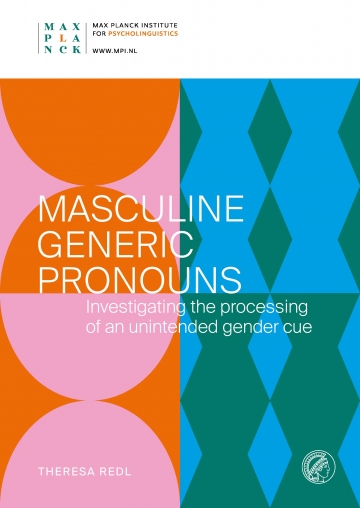 12 January 2021
12 January 2021Theresa Redl will defend her thesis on Thursday January 21st 2021
Theresa Redl will defend her dissertation called “Masculine generic pronouns: Investigating the processing of an unintended gender cue” on Thursday January 21st, 2021 at 12:30. Unfortunately, only a…
-
 18 January 2021
18 January 2021Greta Kaufeld will defend her thesis on Tuesday January 19th 2021
On Tuesday, 19th of January 2021, at 10:30, Greta Kaufeld will defend her doctoral thesis entitled “Investigating spoken language comprehension as perceptual inference”. Due to the restrictions…
-
100 PhD Defences IMPRS
100 PhD Defences IMPRS
- 30 March 2021 10:30 - 12:00DefenceRadboud University Nijmegen
IMPRS Doctoral Defence: John Huisman
Variation in form and meaning across the Japonic language family with a focus on the Ryukyuan languages
- 13 June 2022 10:30 - 12:00DefenceRadboud University Nijmegen
IMPRS DOCTORAL DEFENCE: Aurora Troncoso Ruiz
Non-native phonetic accommodation in interactions with humans and with computers
- 29 June 2022 13:30 - 15:00DefenceRadboud University Nijmegen
IMPRS DOCTORAL DEFENCE: Julia Misersky
About Time: Exploring the Role of Grammatical Aspect in Event Cognition
-
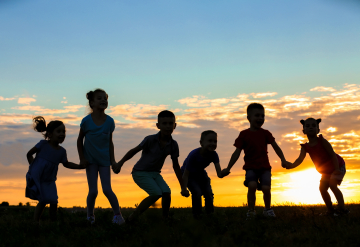 04 March 2022
04 March 2022Genetic links between mental disorders and social behaviour are variable
Many mental health conditions are associated with social difficulties, and mental disorders and social behaviour are genetically linked. But do genetic links vary with specific social traits? An…
-
 15 March 2022
15 March 2022Gert-Jan Schoenmakers will defend his thesis on Thursday 17 March
On Thursday 17 March 2022, at 10.30 (CET), Gert-Jan Schoenmakers will defend his thesis entitled ‘Definite objects in the wild: A converging evidence approach to scrambling in the Dutch middle-field’…
-
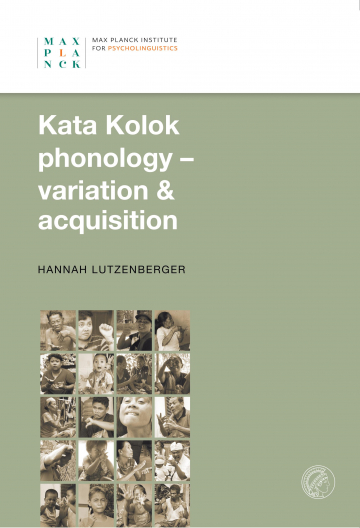 18 March 2022
18 March 2022Hannah Lutzenberger will defend her thesis on Tuesday 22 March
On Tuesday 22 March 2022, at 16.30 (CET), Hannah Lutzenberger will defend her thesis entitled ‘Kata Kolok phonology - variation and acquisition’. Due to the restrictions surrounding the COVID-19…
-
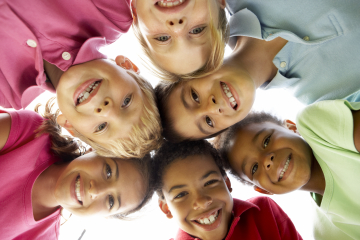 01 April 2022
01 April 2022Baby & Child Research Center and KION joined hands
To connect science and practice, and to exchange knowledge and experience, the Baby & Child Research Center (BRC) and daycare organisation KION started a collaboration. The BRC is a partnership…
- 19 April 2022 15:45 - 17:00ColloquiumMax Planck Institute
MPI Colloquium Dr. Wing-Yee Chow
Wing-Yee Chow is an associate Professor in Experimental Linguistics at University College London. (UCL) Her research looks at how humans process language in real time. For more, see https://www…
- 30 June 2022 11:30 - 13:00DefenceRadboud University Nijmegen
IMPRS DOCTORAL DEFENCE: Katherine Marcoux
Non-native Lombard speech: The acoustics, perception, and comprehension of English Lombard speech by Dutch natives
- 27 June 2022 11:30 - 13:00DefenceRadboud University Nijmegen
IMPRS DOCTORAL DEFENCE: Ksenija Slivac
The Enlanguaged Brain: Cognitive and Neural Mechanisms of Linguistic Influence on Perception
-
 26 April 2022
26 April 2022Gates Cambridge Scholarship for Ryan Law
We are proud and happy to announce that Ryan Law has been awarded a Gates Cambridge Scholarship.
-
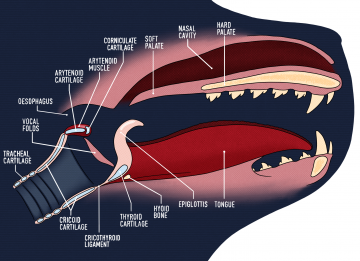 29 April 2022
29 April 2022Anatomical study confirms: harbour seals are good at learning calls
Harbour seals may sound different than expected from their body size. Is this ability related to their vocal talents or is it the result of an anatomical adaptation? An international team of…
-
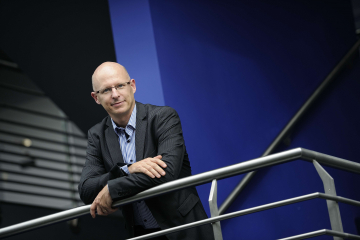 13 May 2022
13 May 2022Nijmegen Lectures 2022
From 5 to 7 July, the Radboud University and the Max Planck Institute for Psycholinguistics will be hosting the Nijmegen Lectures 2022. This year the lectures will be given by Stanislas Dehaene,…
-
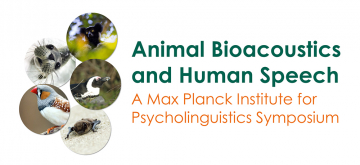 13 May 2022
13 May 2022Animal Bioacoustics and Human Speech Symposium
The Research Group Comparative Bioacoustics invites you to the Animal Bioacoustics and Human Speech symposium on 8 June. Four keynote speakers Dr. Livio Favaro, Dr. Olga Feher, Dr. Marco Gamba, and…
-
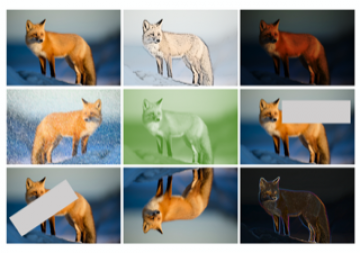 13 May 2022
13 May 2022The role of variability: from playing tennis to learning language
The effect of variability on learning is recognised in many fields: learning is harder when input is variable, but variability leads to better generalization of the knowledge we learned. In this…
Search results
Displaying 361 - 380 of 1022
Share this page